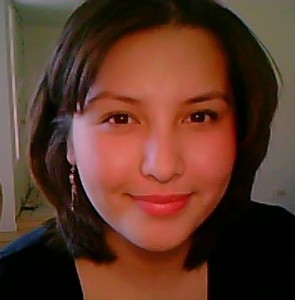I teach English for a living. I primarily teach the composition sequence to freshmen students at my university, but I also teach creative writing, and now and again, literature classes. Sometimes, getting my students excited about reading and writing feels like trying to coax my kids to eat the green stuff on their plates. I know why reading matters in my life – helping my students see why it is relevant in their lives is often another thing entirely.
This semester, on the first day of classes, I asked my Studies in Literature students why it was important to read literature. It was one of those general, ice-breaker-type questions that I tend to throw out into the mix on the first day. It helps me gauge where my students are coming from – and to get a sense, early on, of the dynamics between them. There was an awkward silence for a few minutes, until the answers began to flow. I wrote their responses on the board.
We read:
To learn
To be entertained
To discover
To escape
To transcend loss
To confront big truths (life, and death, and everything in-between)
Because we have to
“Do we?” I asked. “Do we have to read?”
Of course, the answer to that question was ‘yes’ – because, the students told me, if they didn’t read they wouldn’t get the grades they wanted. But I encouraged them to think about reading as a necessity for living; that books provide us with the roadmaps we need to navigate through life. Books are like manuals created just for us – we can even personalize them to our needs and liking. Through them we can learn to be more empathetic and compassionate; we can learn our histories, and those of others; we can learn how to treat the living, and the dying, too. We can learn about hate, and love, and forgiveness. We can learn about motherhood and fatherhood, and sisterhood and brotherhood, and try those roles on from the safety of our couches. Without reading, everything is one-dimensional. Without books, our worlds are narrow and impossibly limited. Sure we can live that way, I pointed out, but would we want to? I mean, really, and truly?
 I am lucky in that I get to see firsthand the impact that literature has on a life. While my students do not find all that they are assigned to read entertaining, I know they learn from some of it. Only last week, a student came shyly up to me after class to tell me how much she got from Helena Viramontes’s story The Moths. This story, narrated by a 14-year old girl, is about family, and loss, and love (how often it is difficult to separate the three). While my student did not see herself perfectly mirrored in the narrator’s story, she had an epiphany-type moment after reading it, and she was able to look back on her own 14-year old self with a new clarity. She could now confront some Big Truths about her own family – ones that she had buried deep inside of her. I’ll never forget the student athlete who gobbled up Ishmael Beah’s A Long Way Gone (I never knew people could write about stuff like that, he told me), or, when I taught a night class one semester, the veteran whose voice (and hands) shook with emotion when it was his turn to share a favorite passage from Tim O’Brien’s The Things They Carried.
I am lucky in that I get to see firsthand the impact that literature has on a life. While my students do not find all that they are assigned to read entertaining, I know they learn from some of it. Only last week, a student came shyly up to me after class to tell me how much she got from Helena Viramontes’s story The Moths. This story, narrated by a 14-year old girl, is about family, and loss, and love (how often it is difficult to separate the three). While my student did not see herself perfectly mirrored in the narrator’s story, she had an epiphany-type moment after reading it, and she was able to look back on her own 14-year old self with a new clarity. She could now confront some Big Truths about her own family – ones that she had buried deep inside of her. I’ll never forget the student athlete who gobbled up Ishmael Beah’s A Long Way Gone (I never knew people could write about stuff like that, he told me), or, when I taught a night class one semester, the veteran whose voice (and hands) shook with emotion when it was his turn to share a favorite passage from Tim O’Brien’s The Things They Carried.
I see the impact of books reflected all the time in my own kids. For example, driving to Harris Teeter with my 11-year old daughter last weekend, I found myself, improbably, discussing T.S. Eliot’s The Love Song of J. Alfred Prufrock. It began when she unexpectedly quoted the first two lines while we sat in traffic at a light.
“Let us go then, you and I,
When the evening is spread out against the sky…Do you know that poem?” she asked from the backseat.
“I grow old, I grow old, I shall wear the bottoms of my trousers rolled,” I replied. “One of my favorite poems! How do you know it?”
She reminded me that Hazel Grace recites the poem in her Favorite Book of All Time: The Fault in Our Stars. She read the book earlier in the summer and, at the time of writing this, has re-read it five times, and watched the movie twice. (This excludes all the viewing and re-viewing of the movie trailer that happened before I decided she was allowed to watch the entire film.) The book changed her life as a young reader – threw the door to a whole new reading experience (and world) wide open. Green’s book led her to Eliot’s poem, which in turn led us into what can only be described as an absolutely delightful yet mind-blowing discussion of Eliot’s poem while we were headed to complete a very mundane errand. Talking with her about The Love Song absolutely made my day. If she hadn’t read TFIOS when, unprompted by teachers or homework obligations, would she have otherwise turned to the Internet to look up the poem by herself? I couldn’t stop thinking about this. The fact that Green took Eliot’s poem and, coming as it does from Hazel Grace, made it new and accessible and interesting and cool and relevant to countless young (and yes, old) readers all over the world – young readers who would perhaps not even have given the poem a second glance outside of the world of the novel – that right there is what books can do; that’s the kind of power they have, and it’s pretty staggering when you think about it.
So, why do we read? We read:
To learn
To be entertained
To discover
To escape
To transcend loss
To confront big truths (life, and death, and everything in-between)
Because we have to – we really, really, just have to.


